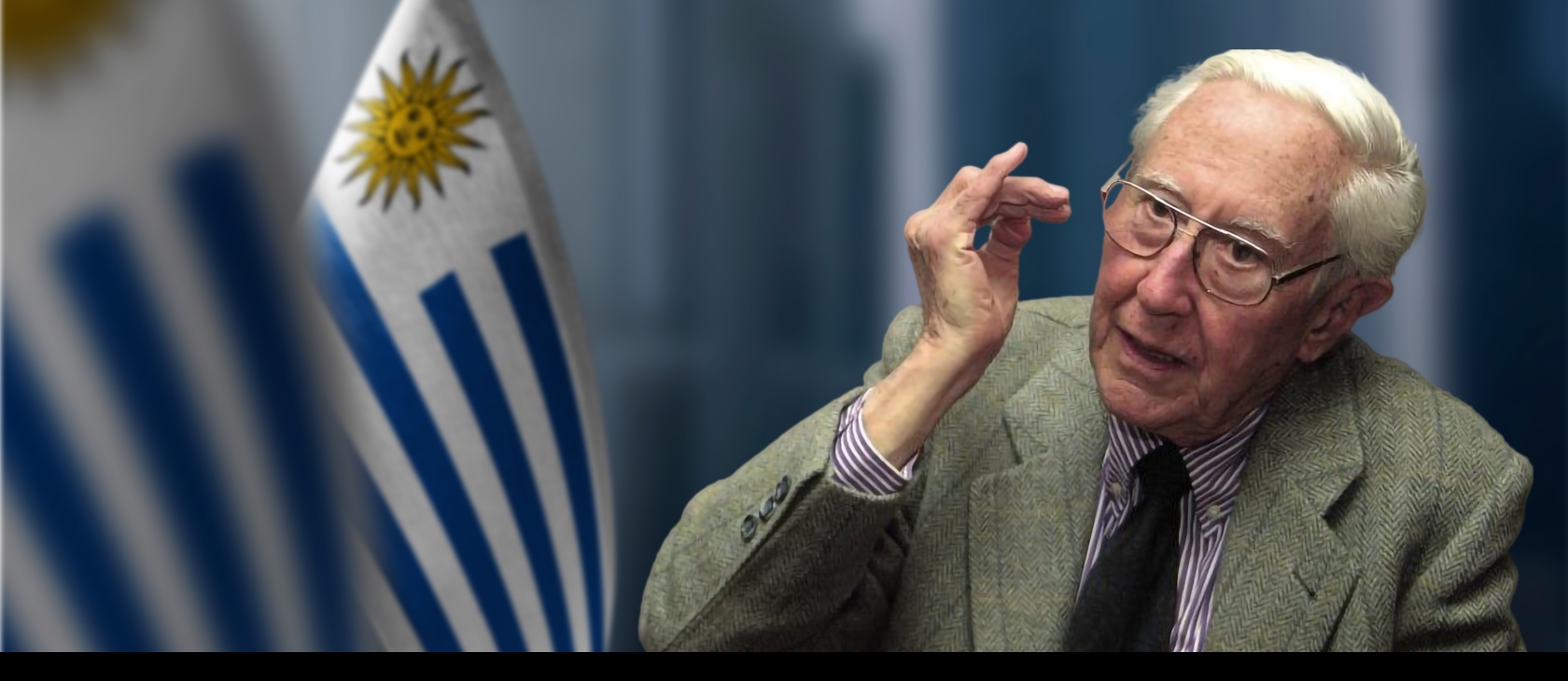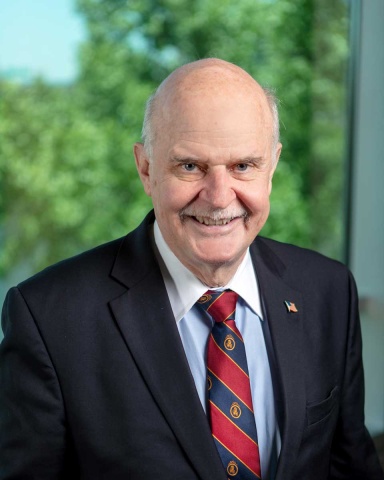Dr. Ramón P. Díaz (1926–2017) was from Uruguay, a country that, with the province of Buenos Aires, is part of what South Americans call “The River Plate” region. For decades, one of the only magazines in English was The Review of the River Plate, with headquarters in Buenos Aires. The region is back in the news today due to the electoral victory of Javier Milei, Argentina’s new president.
Introducing a Christian champion of economic freedom whose work as an intellectual and writer/editor continues to influence Latin American politics today.
This essay is taken from the “In the Liberal Tradition” column of the Spring issue of Religion & Liberty.
Milei often credits Alberto Benegas Lynch Jr. (1940– ) for some of his views on economics and liberalism. Through their writings and intellectual entrepreneurship, Benegas Lynch and his father, Alberto Benegas Lynch (1910–1999), disseminated lessons about the importance of economic freedom like few others. With different methods and talents, Ramón Díaz played a similar role in Uruguay.
While the Benegas Lynches followed the Austrian School of economics, Diaz felt more comfortable working within the Chicago School tradition, as represented mainly by Milton Friedman. All the above were members of the Mont Pelerin Society (MPS). F.A. Hayek founded MPS in 1947 to give freedom-loving intellectuals a forum in which to discuss and debate how to understand the principles essential to a free society and confront the views of socialists of different stripes. Since attending his first meeting in the late ’60s, Díaz became an active participant and then president of MPS.
Díaz served the cause of a free society in many capacities: as a prestigious lawyer, professor, and government official (undersecretary of commerce and industry, president of the central bank, etc.). He was a lecturer on political economics at the Universidad de la República, founded in 1849 and one of the oldest state universities in the Americas. Díaz also taught at the Universidad de Montevideo, which is spiritually oriented by the Opus Dei prelature and ranks as the top university in Uruguay.
When I was 20, during my second year at the Pontifical Catholic University of Argentina, we invited Díaz to speak to our student association. The interventionist consensus at the time, shared by the right and the left, was very powerful. Although we wanted to invite liberal economists from Argentina to speak, we thought it might be safer to invite Díaz. As a Uruguayan, he might prove less “threatening” to the authorities. And yet, despite his gentlemanly demeanor and centrist views, Díaz’s Chicago school economics was still too liberal for the status quo. We did not back down, however, and smuggled him inside the building to conduct the program, with only word-of-mouth promotion.
At the time, I was a Randian, an agnostic who believed in Ayn (Atlas Shrugged) Rand’s “virtue of selfishness.” I knew nothing of Díaz’s views on Christianity. As it turned out, he had found Christ as an adult and, a couple of years after our first encounter, I myself returned to Catholicism, the faith of my baptism. By providence, my vocation was the same as Díaz’s. Both members of Opus Dei, our calling was to live knowing that, with the right intention, we can turn everything we do into prayer. The lay Christian tradition of seeking good in daily work has a long history. We can find this spirituality in the life and writings of St. Francis de Sales (1567–1622) but also more recently in that of St. Josemaría Escrivá de Balaguer, the founder of Opus Dei, who championed this view most vigorously.
On the 100th anniversary of Saint Josemaría’s birth, Díaz wrote a chapter for a book honoring the saint; his chapter was titled “Liberty and Authority.” Díaz quoted St. Josemaría:
“I have spent my entire life preaching personal freedom, with personal responsibility. I have searched for it and I search for it, throughout the earth, as Diógenes searched for a man. And every day I love it more, I love it above all earthly things: it is a treasure which we never appreciate enough.”
In Diaz’s view, Christianity and economic liberalism could go hand in hand. The often-quoted point 42 of John Paul II’s encyclical Centessimus Annus, stating that, when operating under the rule of law and respectful of human dignity, capitalism was consistent with the teachings of the Church, seemed to settle the question for Catholics. Given some of the statements on economics from the Vatican today, it is clear that the work and teachings of public intellectuals like Dr. Díaz are always needed.
In Diaz’s view, Christianity and economic liberalism could go hand in hand.
Díaz also wrote a chapter for a book honoring Alberto Benegas Lynch Sr. Benegas Lynch helped found and led the Centro de Estudios Sobre la Libertad, which did similar work as the Foundation for Economic Education (FEE) in the United States. Díaz thought it was essential to work in the field of ideas:
The task of those who, for the love of truth, propose to generate and transmit ideas about freedom [is] essential to preserve the values that make the prosperity of people possible…. [The world] needs clear thinkers, and these in turn, in the moments of maximum darkness, [are] pioneers who show the path and make it possible to begin the march back to the light.
In addition to his work as a professor, Díaz founded Búsqueda, a weekly magazine/newspaper similar to Barron’s, to disseminate sound economics applied to daily life. He also collaborated with think tanks at home and abroad and was president of the National Academy of Economics in Uruguay (2000–2005). Díaz spoke perfect English and volunteered as a teacher at the English Cultural Center in Uruguay, which added to his merits in earning the honor of a C.B.E. (Commander of the Most Excellent Order of the British Empire).
During the mid-’80s, Díaz was part of the select Michael Walker group of the Fraser Institute, convened to launch an effort to measure economic freedom. Some noted participants were Milton Friedman, Douglass North, Lord Bauer, and Arnold Harberger. During those discussions, Díaz highlighted one of the main problems of Latin America: a weak rule of law. Although his native Uruguay scores as the best country in this regard, it is an exception. Díaz saw that government officials should create secure environments for the actors who risk their property to produce and offer services. Secure contracts are essential to free economies.
Javier Milei of Argentina, the largest country in the River Plate, is like Díaz in that he, too, is an advocate for the free economy. Although closer to Judaism in his sentiments, Milei also is not shy about bringing religion into his struggle to build a free market economy. He frequently states that he relies on Las fuerzas del cielo—“Strength from Heaven” (1 Maccabees 3:19). The life and convictions of Ramón Díaz, as well as Milei’s current efforts, clearly show that champions of economic freedom do not need to abandon their spiritual and religious beliefs to have a lasting effect. Unlike Milei, whose impact and religious journey are still in progress, Díaz persisted until the end of his days and left us a great example to follow.








